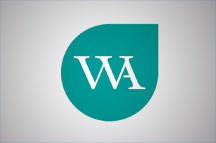 At 10pm on the 8th June, the BBC will announce the outcome of their general election exit poll, widely recognised as a likely indication of how the electoral map will look the following morning. Political pundits, media outlets and even your next-door neighbour will likely all have had a stab at the result in the lead up.
At 10pm on the 8th June, the BBC will announce the outcome of their general election exit poll, widely recognised as a likely indication of how the electoral map will look the following morning. Political pundits, media outlets and even your next-door neighbour will likely all have had a stab at the result in the lead up.
In recent years, we have seen a pattern of unexpected election results. Did those on the inside know what was coming? Or is predicting voting intention becoming more difficult?
EventPredicting a General Election: A Science or an Art?On Wednesday 31st May at 8:30am, WA will host a panel event at the Conrad Hotel (SW1H 0BH) where we will discuss how experts are adapting their approach to political forecasting due to the changing nature of politics. Our panel includes:
Frederica Cocco – Statistics Journalist, Financial Times
Registrations are now closed.
|
A traditional approach – political intuition and years of experience
On the one hand, there’s the traditional approach to predicting elections. The lobby journalists, political hacks and the David Dimbleby’s of this world who use their little black book and experience in the game to work out how things might go. They are experts in their field and understand the nuances and emotion that come with predicting how the electorate will swing in the lead up to an election.
However, their positions have been threatened in recent years following a string of surprises within the political sphere. Paddy Ashdown was adamant that exit polls were incorrect following the 2015 election, famously saying he would “eat his hat” if the Lib Dems were left with as few as 10 seats.
A recent study by the Political Studies Association also indicated that 85 per cent of UK journalists incorrectly predicted that Remain would win the EU referendum, and even fewer thought that Trump would defeat Hillary Clinton in the Presidential election last year. Many of these ‘experts’ ignored the fact that many people’s traditional political allegiances have changed, and rather stayed true to their intuition based on years of experience in the game.
However, pride has been restored of late among elements of this grouping, having correctly argued that the ‘Jeremy Corbyn’ effect would have a detrimental effect on Labour’s position in the local council elections and Emmanuel Macron’s centrist party would be sure to defeat Marine Le-Pen in France. The familiar faces on our TV screens and journalists in our papers are therefore back on their game, indicating how important their analysis and experience can be in helping understand and predict how our political system could play out.
Why? Because politics is as much an art as it is a science; those that live, breath and sleep it still play a critical role in helping people understand who the winners and losers will be come polling day.
The poll of polls – raw data, voter intention and changing methodologies
Despite all that’s been said, numbers and statistics have played a role in helping traditional politicos predict election results.
Data and traditional political analysis are obviously not exclusive to one another, both feeding into predicting the outcome of elections. The pundits and journalists use the data to inform their view of the events, and political parties have long recognised the value of using data, ensuring they get more bang for their buck as they target key voters on a limited budget.
Traditional polling, however, has equally been criticised for being ‘out of touch’ in recent years, first showing a close race in 2015, then a Remain victory in 2016, and finally a Clinton home straight in 2017. Critics point to their outdated methodologies, with some groups’ opinions totally excluded from the final picture.
This leads to discussion about the new pollsters trying to make more accurate predictions of our political system. Nate Silver, founder of political blog FiveThirtyEight, is hailed as the father of this new approach following his successes in correctly predicting how 49 of the 50 states in the 2008 Presidential election would go. His new approach takes into account traditional polls but also accounts for demographic changes.
The tools of the future – big data, social media analytics and trending hashtags
The newest kid on the block is social media which is emerging as a fairly accurate way to predict election results. BrandsEye, a tool that analyses tweets, correctly predicted the vote to leave the EU and the Trump victory in the US.
Facebook is also increasing its offering to allow campaigners to reach Facebook users who “like” certain content, which, evidently, means that they are tracking user opinion. This raises the question over whether this new approach recognises how the modern electorate interact with politics and whether they are more likely to share their ‘true’ views among their friends online rather than to a journalist in an interview or when filling out a survey.
So can anyone really predict the outcome?
Whilst both the art and the science of political predictions have their flaws, the emergence of data analytics seems to be a game changer for punters among us. But the emotional aspect of politics and the analysis provided by experts, arguably, enhances our understanding of elections, even if their predictions are sometimes a little off. Surely, it’s the uncertainty that fuels the thrill of political campaigns. Besides, Dimbleby’s been announcing the results since 1979 –and it wouldn’t be the same without him.












